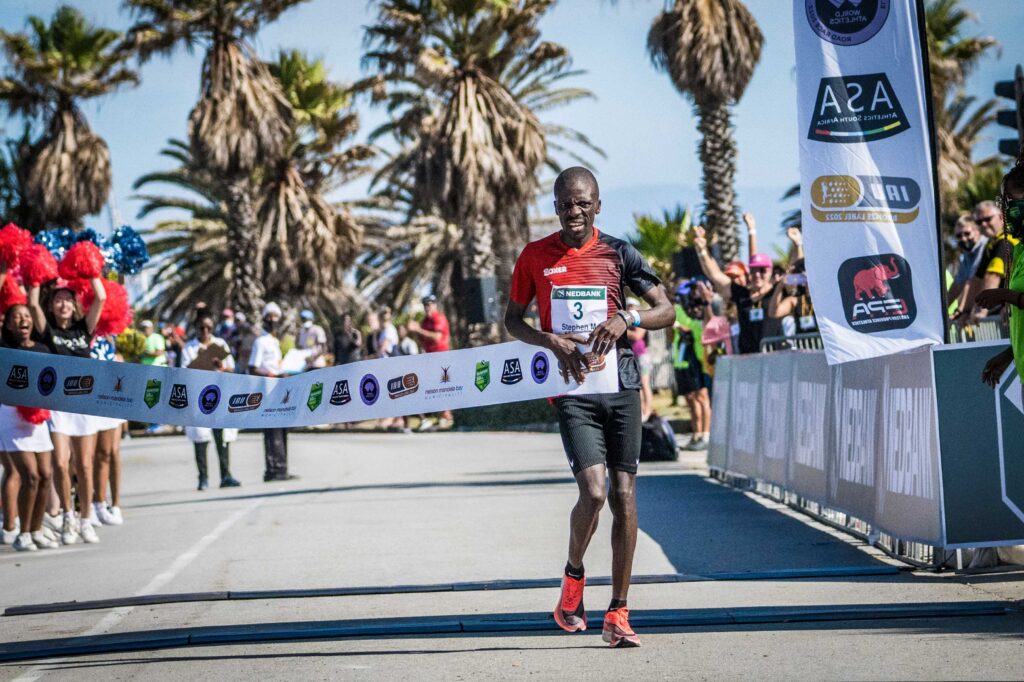
By Stephen Granger
Three world records in the first two years of a race’s existence is extraordinary, but that’s what the second Nedbank Runified “Breaking Barriers” 50km delivered in Gqeberha over the weekend in the form of Stephen Mokoka’s superb victory in 2 hrs 40 min 13 sec, to improve Ethiopian Ketema Negasa’s world best time from last year by 1 min 53 sec.
And only 35 seconds stood between Ethiopian Amelework Bosho and South African Irvette van Zyl’s world record time achieved at last year’s race, the athlete from Addis crossing the finish line in 3:04:58 to win by 3 min 31 sec over Kenyan Shelmith Muriuki. Van Zyl could not defend her title, making up the third step on the podium with her 3:13:22.
While the depth of quality could not match last year’s exceptional fare, when six athletes followed Negasa across the finish line under the previous world record, the warmer and marginally windier conditions which prevailed this year could not equal the perfect conditions for distance running which prevailed in May last year, when the inaugural race was held.
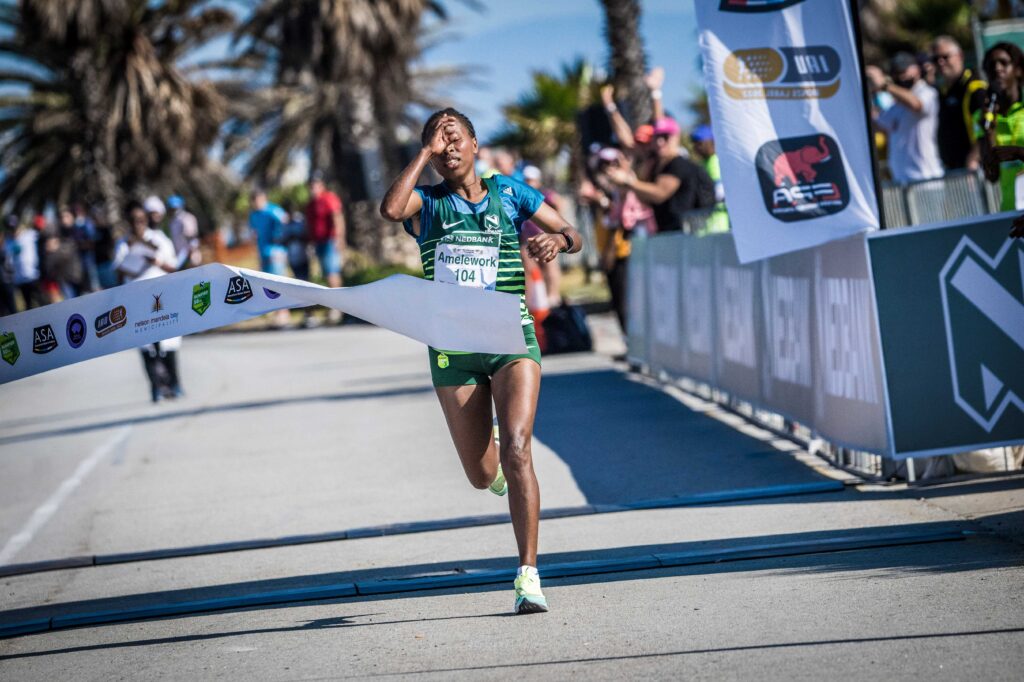
Mokoka’s shone like a beacon. Apart from running a world 50km record in his debut ultra-marathon, his red vest from the Boxer Club was the only outlier in a sea of green on the podium, with green-vested Nedbank athletes taking the other five positions in the male and female competitions.
Mokoka took home a pay cheque of R330 000 for his work, with R130 000 for the win, R150 000 for the world record and another R50 000 awarded to the first South African home. Unlike last year’s race, South African athletes took the top three positions, with Tete Dijana getting home ahead of 2019 Comrades Marathon champion, Edward Mothibi in the runners-up positions.
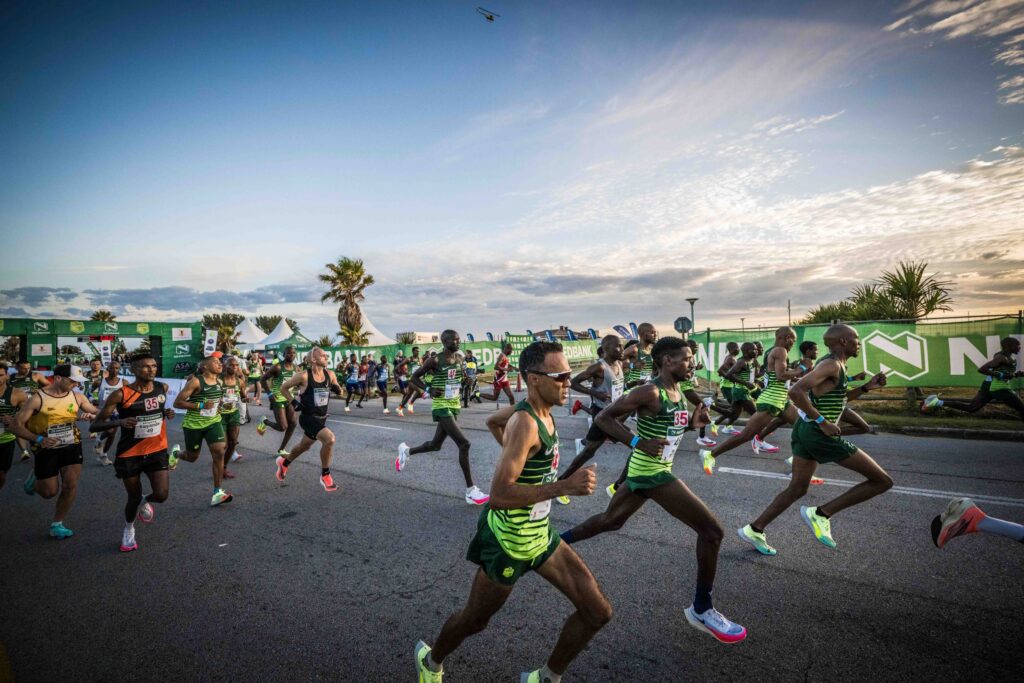
Remarkably, all three athletes hail from the same village in Mahikeng in the North West Province of South Africa.
“I’m feeling tired, but I enjoyed the race,” was Mokoka’s comment . “Melikhaya (Frans) set a perfect pace to 35km so I was able to run comfortably behind him for the first part of the race. I also took the opportunity to get some advice and information from Edward Mothibi. He is an experienced ultra-distance runner and this was my debut over the distance, so it made sense to check out with the expert.”
But after 35km Mokoka had no-one left to talk to, as none was able to keep with South Africa’s leading distance athlete after he injected a 2 min 58 sec kilometre and Mokoka ran solo for the final 15km.
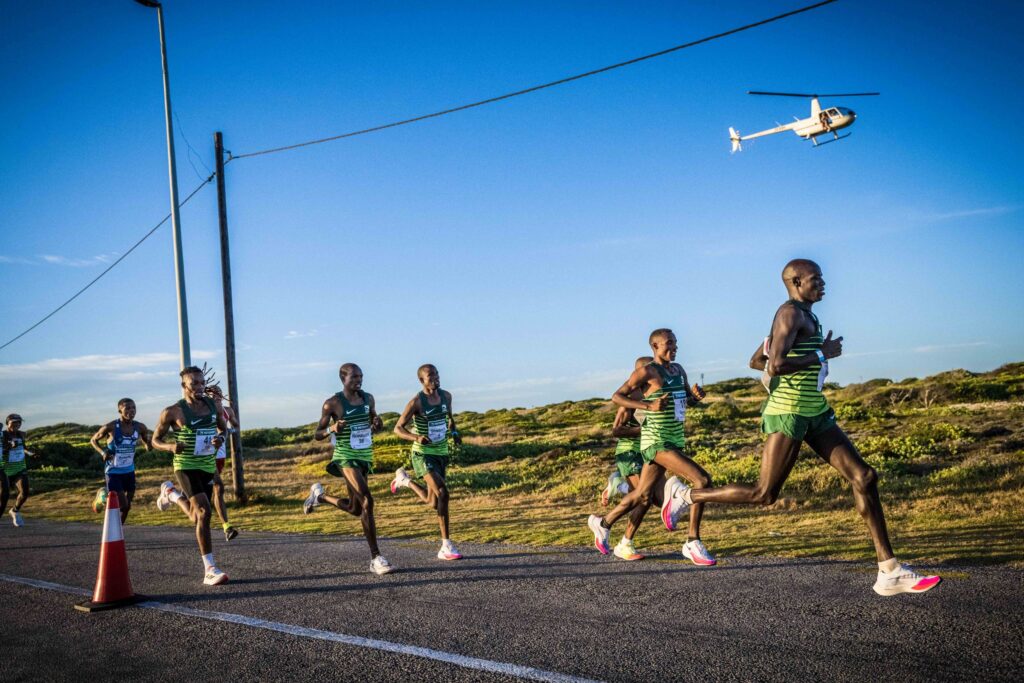
Mothibi was well-pleased with his third position – well up on last year’s 8th. “My race went pretty well, except for the last kilometres when Mokoka vanished at speed! But I’m happy for him – he is one of my heroes in running and I knew no one would be able to stay the pace with him today.”
There were records aplenty, world-best times apart, with 47 year old Lesotho’s Mabothile Lebopo setting a world age group record with his 2:45:59 for fourth, while French athlete Guilaume Ruel posted a European record with his 2:47:24 for fifth position. 45-year-old Zimbabwean Mike Fokoroni’s 2:49:58 for seventh and achieved another world age group best.
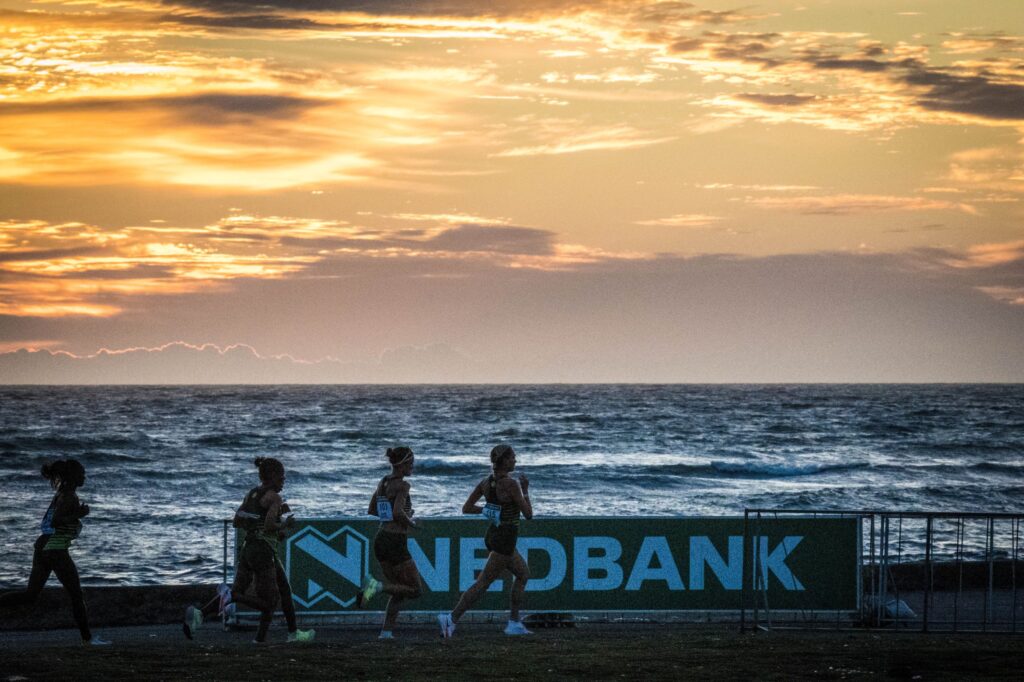
The women elite raced separately, ahead of the men’s field, to comply with international requirements for primary records, and the pace from the start was hot. With the East Africans pushing from early on, the predicted race time after 5km was 2 hours 55 min – eight minutes under the world record and simply too fast given the prevailing conditions.
Pacemaker Stella Marais (winner of last month’s Cape Peninsula Marathon) restored some semblance of pace sanity but after she dropped out as planned at 30km, the pace increased dramatically. In the end, it was likely that lack of race pace judgement cost Mosho the record, which will stand for another year or more in the name of Van Zyl.
©SPNAfrica News
www.spnafricanews.com
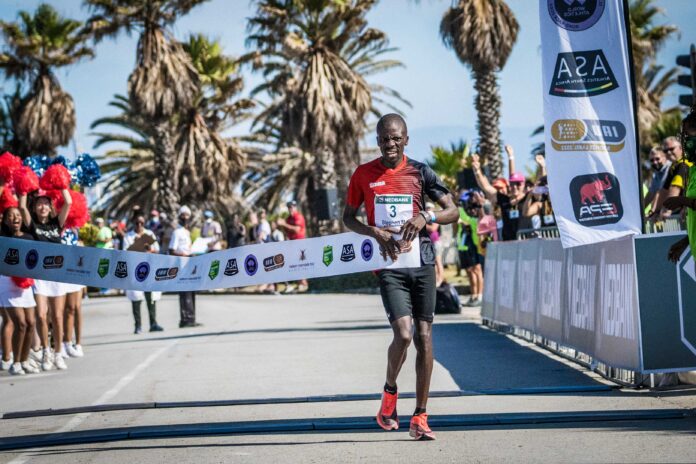



Comments are closed.